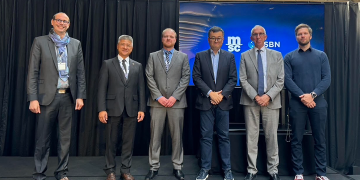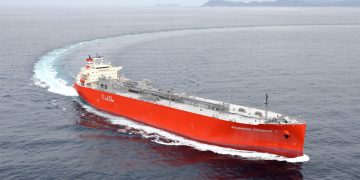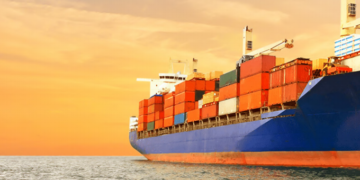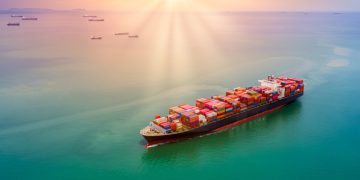The European Sea Ports Organisation (ESPO) today released a statement to welcome the inclusion of maritime in the EU ETS and warn against port evasions.
On 18 April 2023, the European Parliament adopted the final EP-Council agreement for the revised EU Emissions Trading System (ETS).ccording to ESPO, Europe’s ports have consistently called for an ambitious maritime EU ETS that makes the green transition of maritime possible, whilst protecting the competitiveness of European ports.
Whilst ESPO welcomed that a price tag is being put on the emissions produced by ships, the geographical scope of the EU ETS Maritime agreement could still lead to evasive port calls, ESPO warned, where shipping companies can avoid paying into the ETS by adding a call to a port outside the EU, or by reconfiguring their routes.
A few weeks ago, ESPO (European Sea Ports Organisation) and FEPORT (Federation of European Private Port Operators) had called again for further action against evasive port calls, while also making their own suggestions.
Previous suggestions by ESPO and FEPORT
- AIS data and data from customs identify evasion after it has already taken place. The EU Commission should therefore use additional parameters that allow the early detection of evasive port calls and reconfigurations of shipping routes before they become irreversibly entrenched.
- The EU Commission should monitor cargo diversion via all relevant non-EU ports, not only those ports where the total share of container transhipment traffic exceeds 65%. If cargo diversion also takes place via ports or terminals below this threshold, this latter should be lowered or abandoned immediately.
- Port authorities, terminal operators and trade unions should be involved in the monitoring of the impact of EU ETS Maritime, and be continuously consulted on possible evasive trends. Both the European Port Forum and European Sustainable Shipping Forum should be consultative for the EU Commission in this respect.
- When monitoring the impacts of EU ETS Maritime, the focus should be on the cumulative impacts of the Fit for 55 package. This is especially true in the case of FuelEU Maritime. The impact of the current spike in energy prices on the competitive position of ports in the EU should be considered, as well as the trade and state aid policies of the EU’s competitors.
- The decarbonization of the sector will require significant investments in green refuelling and recharging infrastructure in ports as well as adaptations of port superstructure. ESPO and FEPORT very much welcome that revenues from the maritime ETS will support maritime decarbonization through dedicated calls under the Innovation Fund.
- A significant part of the ETS revenues should be invested in ports in the EU via dedicated EU and national calls. The revenues should be allocated to EU Member States based on port calls to ensure that investments in decarbonisation can be made in locations where the emissions take place.
Evasion from the maritime EU ETS is a serious concern that continues to pose a threat to the credibility and robustness of the EU ETS for maritime. ESPO therefore calls for the Commission to start monitoring and effective prevention of carbon and business leakage from EU ETS Maritime.
Any evasion will threaten the integrity of the ETS, leading to higher emissions from longer voyages whilst failing to push shipping companies to green their operations. ESPO warned that it will negatively affect employment and business activity in certain ports in the EU, and undermine their strategic role as hubs of transport, renewable energy, and connectivity.
Early action is crucial as changes in port traffic and the reconfiguration of shipping routes are almost impossible to reverse once they occur.
Finally, ESPO called for the strategic use of revenues from EU ETS, where the decarbonisation of the sector will require significant investments in green refuelling and recharging infrastructure in ports. ESPO very much welcomes that revenues from the maritime ETS will support maritime decarbonisation through dedicated calls under the Innovation Fund, and calls for a significant part of the ETS revenues to be invested in ports in the EU via dedicated EU and national calls.
European Community Shipowners’ Associations (ECSA) also released a statement on the new EU ETS law to point out how the revenues can assist in the decarbonization of shipping.
We believe that the EU ETS maritime can be an effective instrument to boost the decarbonisation of shipping. With the current scope we fear however that shipping lines still have the choice either to go green, pay, or to divert their journey to limit or avoid the ETS charge altogether.
…said Isabelle Ryckbost, ESPO Secretary General.




























































